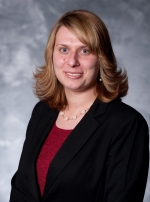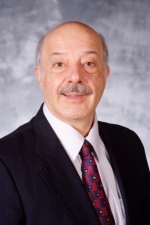By Christina E. Sanchez
THE TENNESSEAN
Jim Cheeks wears a white lab coat, carries a stethoscope to listen to your heart and writes prescriptions for what ails you.
But Cheeks isn’t a doctor. He is a family nurse practitioner who co-owns a primary care practice, Mount Juliet Family Care, without an onsite doctor.
Cheeks and co-owner Bruce McLaughlin are part of a growing movement of nurse practitioners breaking out to start independent primary care practices. With fewer years of schooling and less debt, they enter the work force at five times the rate of primary care medical residents.
Nurse practitioners believe they could be part of the solution to the growing shortage of primary care doctors and ever-expanding health-care costs. But some question whether they have sufficient training to ensure that patients are safe.
“Physicians train for as long as they do for a reason. It’s to look for underlying issues and provide comprehensive medical care,” said Kasey Dread, executive director of the Nashville Academy of Medicine, a chapter group of the Tennessee Medical Association. “It’s about patient safety, from the physician’s perspective.”
Cheeks disagrees.
“In a family practice I do most things a general practice physician does, and there is not a lot I wouldn’t feel comfortable treating,” said Cheeks, who opened his practice six years ago.
“More and more, we will become the primary care provider for more patients. Nurse practitioners are very competent and capable to manage routine health issues.”
See the full article at Tennessean.com
Monthly Archives: June 2010
Kiningham to Study Current Issues in Substance Abuse Education
 School of Pharmacy Associate Professor Kelley Kiningham will be attending the University of Utah School of Alcoholism and Other Drug Dependencies this summer. The School, which is recognized internationally, provides specialized information and techniques for working effectively with substance abuse problems in various disciplines. Kelley’s plan is to focus on current issues and trends in the field of substance abuse education, prevention and treatment.
School of Pharmacy Associate Professor Kelley Kiningham will be attending the University of Utah School of Alcoholism and Other Drug Dependencies this summer. The School, which is recognized internationally, provides specialized information and techniques for working effectively with substance abuse problems in various disciplines. Kelley’s plan is to focus on current issues and trends in the field of substance abuse education, prevention and treatment.
Done but not over
Dr. Ruby Dunlap’s Uganda Fulbright Blog
I expected to feel relieved, elated even, to be leaving Uganda. The work had been hard, the frustrations many, and all of us, Dad, Bob, and I, missed family and friends back in the U.S. It had been nearly ten months and we were ready to go home. So why were my eyes so wet as the plane lifted off into the night and the lights of Entebbe faded behind us? Uganda and her people have a piece of my heart and it told.
The last paper was graded, the grades averaged, and the final report made. Goodbyes were said, hugs exchanged, promises of emailing regularly made. The most immediate and obvious reflection came easily. All nations have some glory and some shame; I had learned better to embrace both the glory and shame of being a U.S. citizen. I had learned better to put the U.S.’s glory to work and to seek to remedy or mitigate some of her shame. I learned that being a child in Africa and being an adult with much responsibility are very different things. In communication with Joseph, Florence, and Jannat from Mbarara University of Science and Technology (MUST) in western Uganda, I consented to take on some advising of master’s in nursing theses. My stay in Uganda was done, my Fulbright assignment completed, but my work for Uganda is not over.
There is still much to puzzle over in the analysis of my experiences in Uganda. I expect it will take a long time to reflect on and I will likely not ever come to the end of it. But let us take another look at one critical issue. The blog entry, “If you put it that way,” reflected on the different ways one could think of resource-rich and resource-poor healthcare environments. It is difficult to think about the topic of this entry in more than one way; the temptation is to think that more money will solve all the problems of the resource-poor. But it is not so simple; there is perplexity in the problems and the solutions in both rich and challenged environments. One only has to consider the recent healthcare reform efforts in the U.S. to appreciate the complexity in what is possibly the richest healthcare environment on the planet.
$5000 Donated for PT Clinical Scholarship
Recognizing the need for student financial assistance, an anonymous donor recently gave $5000 to Belmont University for a Physical Therapy Clinical Scholarship. This scholarship is designed to assist third year physical therapy students in defraying the costs related to the clinical experiences. Students typically travel to other cities to participate in 8-week long full-time clinical experiences in multiple areas of physical therapy, including outpatient, rehabilitation, acute care and experiences tailored to their goals. These opportunities are available nationwide and internationally. This needed requirement can be costly. Seeing the need to encourage and assist students in their clinical endeavors, this scholarship has assisted students allowing them to focus on their experiences and not on the finances involved since 2000.
A three-person committee, comprised of physical therapists, who were themselves recipients of the clinical scholarship award during their physical therapy education at Belmont University, chose students based on their campus and community involvement, high academic achievements and need. The 2010 recipients are: Emily Burn, Matt Cabbage, Nikki Crosser, Kelly Ehlert, Susan Foster, Holly Gentry, Joy Moulton, Cara Nash, Sylvia Poor and Jenna Reid.
Bacon Presents Poster at Sports Medicine Meeting
Nick Bacon and Patrick Schneider of the Sport Science Department attended the annual American College of Sports Medicine meeting in Baltimore. Bacon presented a poster titled, “A cross-sectional survey of why shod runners do not run barefoot.” Dr. Bacon will begin his first semester in the Sport Science Department in August teaching in the Exercise Science discipline with Dr. Schneider.
Marvanova selected for national Parkinson’s disease training
 Assistant Professor of Pharmaceutical Sciences Marketa Marvanova was recently selected for a Parkinson’s Disease Pharmacotherapy Traineeship through the American Society of Consultant Pharmacists Foundation. Marketa was chosen in this very competitive program as one of only 10 pharmacists selected nationally. The traineeship will be conducted at the Parkinson’s Disease and Movement Disorders Center at the Northwestern University Feinberg School of Medicine in Chicago.
Assistant Professor of Pharmaceutical Sciences Marketa Marvanova was recently selected for a Parkinson’s Disease Pharmacotherapy Traineeship through the American Society of Consultant Pharmacists Foundation. Marketa was chosen in this very competitive program as one of only 10 pharmacists selected nationally. The traineeship will be conducted at the Parkinson’s Disease and Movement Disorders Center at the Northwestern University Feinberg School of Medicine in Chicago.
Notes on Cambodia
2010 Mission Trip to Cambodia
from Susan Taplin
 WE ARE BACK!!!! And jet-lagged. I write this entry as a BRIEF reflection over the past few weeks comparing it to my experience over the past 6 (somewhat) years. WoW is the biggest thing that comes to mind. WOW!! Every year I am amazed at the experience I am so very blessed to receive. I watch the hearts of people (in both countries) and my own, change. How can I say? How can I do…
WE ARE BACK!!!! And jet-lagged. I write this entry as a BRIEF reflection over the past few weeks comparing it to my experience over the past 6 (somewhat) years. WoW is the biggest thing that comes to mind. WOW!! Every year I am amazed at the experience I am so very blessed to receive. I watch the hearts of people (in both countries) and my own, change. How can I say? How can I do…
So here are some of my notes on Cambodia:
One of the biggest impacts in my own heart is the impact my husband has had in Cambodia. I am always amazed at what people say when I arrive… things like, Oh Suzan…Chas’ wife or You remember Chas’ wife? For those who don’t know, we were both there with our boys for 2 years and I have been back for 4 times with Chas and the boys only once….I am still known by many as Chas’ wife. I love that. It makes me think deeply of my real role in life and my purpose.
Giorgianni Elected Vice-Chair, Chair Elect of APHA Caucus
 Dr. Sal Giorgianni, director of Experiential Education & Development for the School of Pharmacy, was recently elected Vice-Chair and Chair elect of the American Public Health Association’s newly formed Caucus On Men’s Health. In addition, Giorgianni will be teaching an elective on men’s health for the Fall 2010 semester, one of only a few such classes currently offered in the U.S.
Dr. Sal Giorgianni, director of Experiential Education & Development for the School of Pharmacy, was recently elected Vice-Chair and Chair elect of the American Public Health Association’s newly formed Caucus On Men’s Health. In addition, Giorgianni will be teaching an elective on men’s health for the Fall 2010 semester, one of only a few such classes currently offered in the U.S.
Cambodia Forever In Our Hearts
2010 Mission Trip to Cambodia
from Sharon Dowdy
 In the mode of preparing to leave and saying our good-byes, we wake up to take a morning walk only to realize that we are too late to see the city wake up. It is already bustling with traffic and people; exercisers have gone to work; the sun is already high and hot in the sky. We see a couple of people still sleeping in hammocks or and one mother sending her children out to ask for food.
In the mode of preparing to leave and saying our good-byes, we wake up to take a morning walk only to realize that we are too late to see the city wake up. It is already bustling with traffic and people; exercisers have gone to work; the sun is already high and hot in the sky. We see a couple of people still sleeping in hammocks or and one mother sending her children out to ask for food.
Last night as another farewell, we went to dinner with some of the friends in the church–the pastor, Sovann, and his wife, Sopheap, and their two young children; one of the nurse educators, Phalla, and her husband, Kenda, and their two beautiful daughters; Sotia and wife, Paesset, and 7 year old son who was only one year old when I first met them. It was one of my favorite times on the trip; a relaxed and comfortable time with children laughing, entertaining us with their singing, and playing silly games as children everywhere do. It is so amazing to be able to share in this way with people all the way around the world! We discussed raising children, stories of engagement and marriage, illness, faith, victories.

